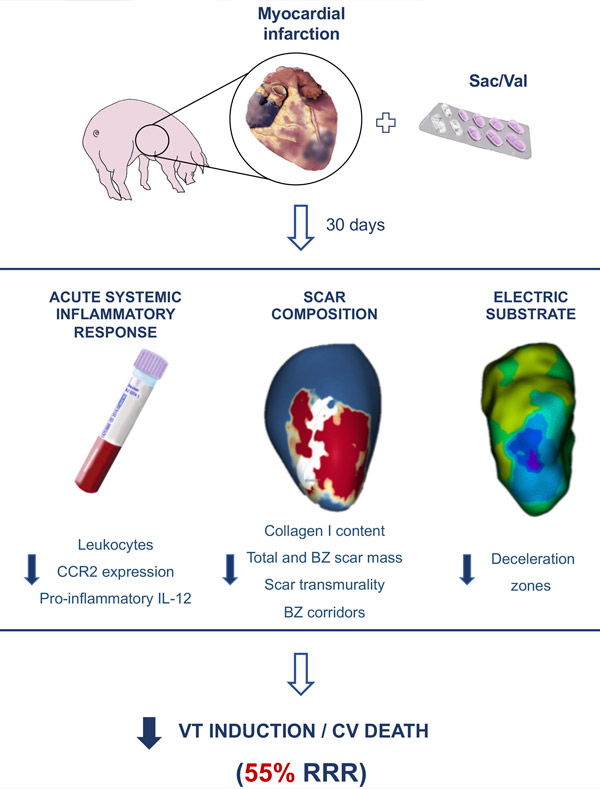New drug shows promising results in recovery of patients after heart attack
Sist anmeldt: 14.06.2024

Alt iLive-innhold blir gjennomgått med medisin eller faktisk kontrollert for å sikre så mye faktuell nøyaktighet som mulig.
Vi har strenge retningslinjer for innkjøp og kun kobling til anerkjente medieområder, akademiske forskningsinstitusjoner og, når det er mulig, medisinsk peer-evaluerte studier. Merk at tallene i parenteser ([1], [2], etc.) er klikkbare koblinger til disse studiene.
Hvis du føler at noe av innholdet vårt er unøyaktig, utdatert eller ellers tvilsomt, velg det og trykk Ctrl + Enter.

Researchers from the Cardiac Regeneration and Heart Failure Research Group (ICREC) at the Instituto de Recherche Germáns Trias i Pujol (IGTP) and the Heart Institute of the Germans Trias Hospital (iCor) have discovered beneficial effects of the new drug Sacubitril/Valsartan in the treatment of heart attack myocardial infarction.
Their study, recently published in the journal Circulation: Arrhythmia and Electrophysiology, offers new insights into the drug's ability to reduce inflammation, cardiac fibrosis, and prevent dangerous cardiac arrhythmias after myocardial infarction.
Cardiovascular disease, especially myocardial infarction, is the leading cause of death worldwide. Following such an event, the damaged myocardium, which has suffered from ischemia, mounts an intense inflammatory response to remove dead cells and activate the replacement of necrotic tissue with a collagen scar.
While the scar maintains the structural integrity of the heart, it does not contribute to the heart's pumping function and increases the risk of malignant arrhythmias, which contributes to the development of heart failure, a condition in which the heart cannot pump blood effectively to meet the body's needs.
In this context, Sacubitril/Valsartan is a combination drug that has shown promising results in reducing rehospitalizations and cardiovascular mortality in patients with heart failure. While the role of this drug in the treatment of heart failure is beginning to be well established, its effectiveness in the management of myocardial infarction remains largely unexplored. In this regard, the present study aimed to evaluate the effects of early administration of Sacubitril/Valsartan in a preclinical porcine model of myocardial infarction in terms of inflammation, cardiac fibrosis and arrhythmogenic properties of the heart.

The drug has shown promising results in mitigating these effects, reducing acute systemic inflammatory response and the risk of fatal arrhythmias by 55%, and promoting healthier scar formation. Drs Felipe Bisbal and Carolina Galvez-Monton, who led the study, said that "the effects of Sacubitril/Valsartan in a porcine model of myocardial infarction are very promising and suggest that this new drug may significantly improve the prognosis and quality of life of patients suffering from this event.".
Future human clinical evaluation studies will be key to determining the reproducibility of these findings and the clinical benefit of Sacubitril/Valsartan therapy in the myocardial infarction scenario.
